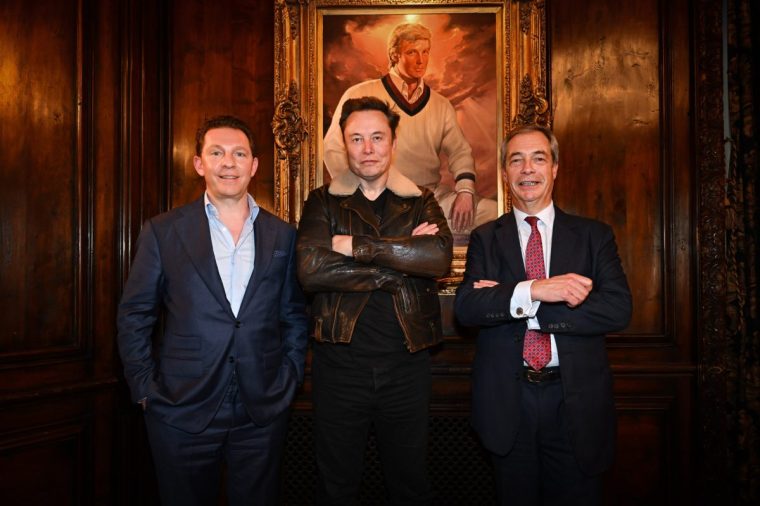British politics enters 2025 in a three-way tie with Reform UK almost even with Labour and the Conservatives, analysis by the UK’s leading polling expert reveals.
Averages of all major opinion polls compiled by Sir John Curtice show that Labour’s popularity has significantly fallen over the course of 2024 despite the party’s landslide general election victory.
The Conservatives have remained roughly stable throughout the year, ending it in the same position as they began.
All the gains from Labour’s declining position appear to have accrued to smaller parties, in particular Reform which has seen its popularity increase since the election in July.
Curtice, a professor at the University of Strathclyde, warned that Labour’s support from voters “has fallen away sharply” with a more rapid decline in its popularity than has ever been seen for a new government – after the party came to power with a smaller proportion of the vote than any previous majority government.
He concluded: “Britain’s traditional system of two-party politics now seemingly faces its biggest threat since the foundation of the SDP in 1981.”
Averages of the polls for each month of the year, shared with The i Paper, show that from the start of 2024 until the general election was called in May the two main parties were fairly stable: Labour attracted 43-45 per cent of the vote and the Tories were on 23-26 per cent.
Reform’s popularity was gradually rising but its vote share never exceeded 12 per cent, only just ahead of the Liberal Democrats.
Once Rishi Sunak announced that an election would take place on 4 July, Labour’s support gradually declined to 39 per cent while the Reform share rose to 17 per cent and the Conservatives dipped as low as 20 per cent.
Following the actual result, which revealed that just 35 per cent of voters had backed Labour despite the party taking nearly two-thirds of Commons seats – with the Tories on 24 per cent and Reform third with 15 per cent – most experts concluded that the opinion polls had overstated support for Sir Keir Starmer‘s party.
The number of polls published each month since the election has significantly declined, but those which have appeared show a pattern of falling support for Labour with Reform gaining.
Labour has been beset by problems in its first months in government. Starmer was forced to axe his high-profile and controversial chief of staff Sue Gray following a series of leaks about tensions in Whitehall, culminating in the revelation she earned more than the Prime Minister.
The government also made negative headlines for the decision to scrap the winter fuel payment for millions of pensioners, while Rachel Reeves’s first Budget is still making headlines for her decision to increase employers’ national insurance contributions.
On Thursday the Bank of England suggested the uncertainty over whether this will result in lower wages or higher prices is hampering its planning for interest rates cuts.

Reeves was also under sustained fire for the decision to remove exemptions for inheritance tax from farmland.
Meanwhile the world’s richest man, Elon Musk, has taken against Labour, criticising policies on his X social media platform and meeting with Reform UK leader Nigel Farage and hinting he may donate as much as $100m to his party.
For December, the polling averages put Labour on 26 per cent with the Conservatives on 25 per cent and Reform on 22 per cent, followed by the Lib Dems with 12 per cent and the Greens on 8 per cent, both marginally better than their showing at the election.
Curtice said: “Although the year saw Labour return to power for the first time in 14 years, it did so on just 35 per cent of the vote, the lowest share for any majority government in Britain’s psephological history.
“The apparent lack of enthusiasm for the party has then been underlined by the fact that the party’s support has fallen away sharply during its first months in office – more so than for any previous newly elected government.
“Meanwhile, 2024 has been the year in which Reform has burst on the political scene – recording a notable increase in support in the months leading up to the election, significant progress during the election campaign, and then a further advance since. As a result, Britain’s traditional system of two-party politics now seemingly faces its biggest threat since the foundation of the SDP in 1981 – and all eyes will be on how Reform fares in 2025.”
Farage’s previous party, Ukip, won 13 per cent of the vote in the 2015 general election but was only able to take one parliamentary consistuency – as opposed to five for Reform now – and faded away after the next year’s Brexit referendum.
The Tories have struggled to reach 30 per cent since Liz Truss‘s short-lived premiership in 2022 set off a dramatic slide in the party’s popularity.



Maurice Saatchi: I used to adore capitalism – then I had lunch with Margaret Thatcher